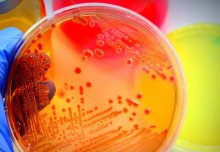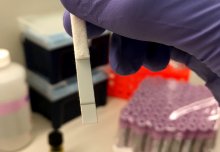

BOXSET DANGER
Binge watching TV could increase bowel cancer risk in men
Sitting down to binge watch more than four hours of TV over a day could increase the risk of bowel cancer



Binge watching TV could increase bowel cancer risk in men
Sitting down to binge watch more than four hours of TV over a day could increase the risk of bowel cancer


Running on renewables: how sure can we be about the future?
A variety of models predict the role renewables will play in 2050, but some may be over-optimistic, and should be used with caution, say researchers.
 6
6


Global conservation goals may fall short without protection of intact forests
The world’s most valuable forests need special protections to ensure we meet conservation and climate goals, scientists recommend in a new study.


Open Air Laboratories empower a million new citizen scientists to explore nature
More than one million people across the UK have taken part in a unique scheme that allows them to contribute to research on their local green spaces.


Organ-on-chip technology enters next stage as experts test hepatitis B virus
Scientists at Imperial College London have become the first in the world to test how pathogens interact with artificial human organs.


London universities join national drive to transform health through data science
A collaboration between London universities, which includes Imperial, has been chosen as a foundation partner of a new national health institute.


Ozone at lower latitudes is not recovering, despite Antarctic ozone hole healing
The ozone layer is recovering at the poles, but unexpected decreases in part of the atmosphere may be preventing recovery at lower latitudes.
 2
2


Children's drug-resistant bugs could render common antibiotics ineffective
Rising levels of drug-resistance in bacteria that cause childhood infections could render common antibiotics ineffective, a study warns.


Feature
Five ways Imperial is fighting cancer
To mark World Cancer Day we look at five ways Imperial is fighting cancer.


Quick HIV detection method could diagnose early disease
A test capable of detecting HIV early using more efficient, robust methods has been developed by researchers at Imperial.